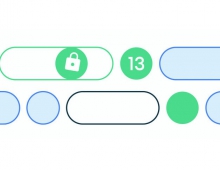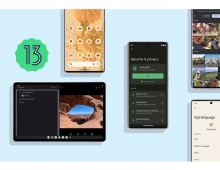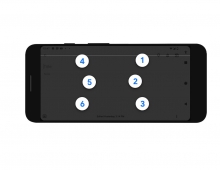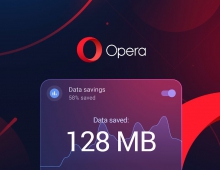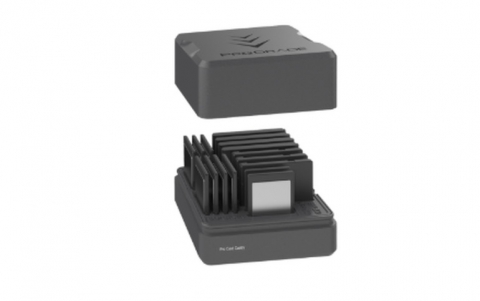
Who Uses The Carrier IQ Rootkit Software
While the Carrier IQ software case turns out to be a privacy scandal, AT&T, Sprint, HTC, and Samsung have confirmed that their mobile phones integrate the tracking software.
However, AT&T and Sprint insist that the software is being used to improve wireless network performance - keeping the same stance with the company that developed the rootkit.
Sprint says that it collects information to understand the customer experience with devices on its network but ut does not look at the contents of messages, photos, videos, etc., using this tool.
HTC and Samsung said they were integrating the software into their Android and Windows Phone OS cellphones only because their carrier customers were asking for it. HTC plans to provide users a way to opt out of data collection by the Carrier IQ application.
On the other hand, Verizon Wireless, Research in Motion, and Nokia claim that they do not inegrate the tool into their phones.
Apple also said it has stopped using the Carrier IQ software, with iOS 5 in most of its products and plans to competely remove it in a future software update. The company added that it never collected personal data such as keystrokes and messages.
Last week, security researcher Trevor Eckhart published a report disclosing how Carrier IQ's software could be used by carriers and device makers to track Android and other smartphone users. He described the software as a rootkit that could be used by carriers and phone makers to collect almost any kind of data from a mobile phone without the user's knowledge.
Earlier today, an app developer released a free app that could scan your Android smartphone for the Carrier IQ rootkit. It is available on the Android market as "Voodoo Carier IQ Detector".
On Dec. 1st, U.S. Sen. Al Franken (D-Minn.) called on Carrier IQ to explain exactly what the software records, whether it is transmitted to Carrier IQ or any third party, and whether the data is protected against security threats that could risk the safety and privacy of American consumers.
"Consumers need to know that their safety and privacy are being protected by the companies they trust with their sensitive information," said Sen. Franken. "The revelation that the locations and other sensitive data of millions of Americans are being secretly recorded and possibly transmitted is deeply troubling. This news underscores the need for Congress to act swiftly to protect the location information and private, sensitive information of consumers. But right now, Carrier IQ has a lot of questions to answer."
In his letter, Sen. Franken called on Carrier IQ President and CEO Larry Lenhart to explain exactly what information the software records, whether that information is transmitted to Carrier IQ or to other companies, and whether that information is shared with any third party, among other things. He also asked if Carrier IQ would allow users to stop this tracking.
Earlier this year, Sen. Franken introduced the Location Privacy Protection Act, which would require companies like Connect IQ to obtain the explicit permission of customers before tracking their location information or sharing that information with third parties. The legislation has already garnered significant support in the Senate and from prominent privacy and consumer protection advocates.
Sprint says that it collects information to understand the customer experience with devices on its network but ut does not look at the contents of messages, photos, videos, etc., using this tool.
HTC and Samsung said they were integrating the software into their Android and Windows Phone OS cellphones only because their carrier customers were asking for it. HTC plans to provide users a way to opt out of data collection by the Carrier IQ application.
On the other hand, Verizon Wireless, Research in Motion, and Nokia claim that they do not inegrate the tool into their phones.
Apple also said it has stopped using the Carrier IQ software, with iOS 5 in most of its products and plans to competely remove it in a future software update. The company added that it never collected personal data such as keystrokes and messages.
Last week, security researcher Trevor Eckhart published a report disclosing how Carrier IQ's software could be used by carriers and device makers to track Android and other smartphone users. He described the software as a rootkit that could be used by carriers and phone makers to collect almost any kind of data from a mobile phone without the user's knowledge.
Earlier today, an app developer released a free app that could scan your Android smartphone for the Carrier IQ rootkit. It is available on the Android market as "Voodoo Carier IQ Detector".
On Dec. 1st, U.S. Sen. Al Franken (D-Minn.) called on Carrier IQ to explain exactly what the software records, whether it is transmitted to Carrier IQ or any third party, and whether the data is protected against security threats that could risk the safety and privacy of American consumers.
"Consumers need to know that their safety and privacy are being protected by the companies they trust with their sensitive information," said Sen. Franken. "The revelation that the locations and other sensitive data of millions of Americans are being secretly recorded and possibly transmitted is deeply troubling. This news underscores the need for Congress to act swiftly to protect the location information and private, sensitive information of consumers. But right now, Carrier IQ has a lot of questions to answer."
In his letter, Sen. Franken called on Carrier IQ President and CEO Larry Lenhart to explain exactly what information the software records, whether that information is transmitted to Carrier IQ or to other companies, and whether that information is shared with any third party, among other things. He also asked if Carrier IQ would allow users to stop this tracking.
Earlier this year, Sen. Franken introduced the Location Privacy Protection Act, which would require companies like Connect IQ to obtain the explicit permission of customers before tracking their location information or sharing that information with third parties. The legislation has already garnered significant support in the Senate and from prominent privacy and consumer protection advocates.



